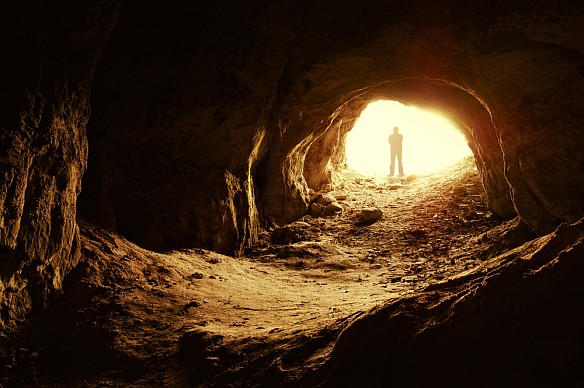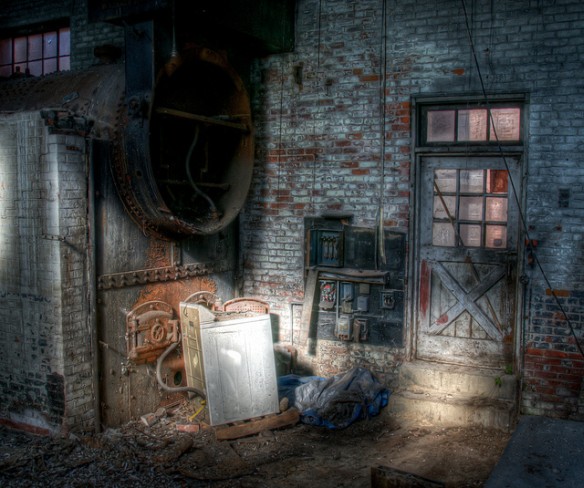I’ve been wondering to myself, what does the name Earth Store mean?
Earth Store (Chinese: 地藏 Dìzàng) session started on Sunday, and just like in other retreats, we will be spending a good deal of time reciting Earth Store Bodhisattva’s name. Partly because of this, and partly due to my own curiosity, I’ve been wondering to myself, what does the name Earth Store mean? Sometimes going character by character helps me get a better understanding of the meanings of words. The first character of the name is fairly straightforward. The word “earth” has, as far as I can tell, the same meaning in English as its Chinese complement 地 dì. It can refer either to the element earth, or to the ground that we stand on. It also carries the meanings of a source of abundance and stability.
The second character, 藏 zàng (Sanskrit: gharba, English: store) is much more nuanced linguistically, philosophically, and also in practice (Clara also made a comment about the interesting interpretations of this word a few posts back.) It is often translated to mean “storehouse” or “treasury,” and the word in Chinese also has the sense of hoarding something or hiding it away. The original Sanskrit word gharba has the additional meaning of “womb” or “embryo,” imbuing it with a sense of not only storing material, but also of hiding away some source of future life.
Originally nothing but a container, “full” with the emptiness of limitless potential, this is where the karmic seeds of habitual actions are kept, only to ripen when we next find ourselves in similar conditions.
In Yogacara psychology, there is a related term alaya, which also carries the meanings of both “earth” and “store.” In English we usually call this ground the “storehouse consciousness,” and it is the source of all the myriad appearances of the phenomenal world. As a metaphor, this storehouse represents the empty clarity of our original face, before we fill up that space with the karmic patterns of our self-identity. Originally nothing but a container, “full” with the emptiness of limitless potential, this is where the karmic seeds of habitual actions are kept, only to ripen when we next find ourselves in similar conditions. These habits color our perceptions and our thoughts, often compelling us to act out the very same patterns over and over again. When the seeds from this storehouse ripen in the conditioned world, they eventually bear the fruit of every single one of our habitual thoughts, perceptions, and behaviors. You could also say that this storehouse is the womb from which the phenomenal world is born.
I was having a conversation about these meanings the other day, and a friend later sent me this poem* by Rilke, which I think somehow captures the experience of exploring and wrestling with our oldest, most powerful and primordial currents:
No one lives his life.
Disguised since childhood,
Haphazardly assembled
From voices and fears and little pleasures,
We come of age as masks.Our true face never speaks.
Somewhere there must be storehouses
Where all these lives are laid away
Like suits of armor or old carriages
Or clothes hanging limply on the walls.Maybe all paths lead there,
To the repository of unlived things.
Where do all of these old habits and patterns come from? Somewhere there must be storehouses, thought Rilke. I think a large part of the spiritual life is learning how to deal with what is born from those storehouses, those old and murky patterns that we sometimes barely see, whose beginnings we might not even remember. In reflection we might also learn how to deal with what goes into these storehouses: the consequences of how we act, and what we choose to engage with mentally and emotionally.
Because the things we tend to ignore are ignored for a reason, this process is also often not a lot of fun; but by holding a topic in mind against the backdrop of mental activity, these old patterns can be experienced in a new way.
Using recitation to focus the mind, we often find that in that clarity of focus, our old patterns of thought and behavior also become more clear. Because the things we tend to ignore are ignored for a reason, this process is also often not a lot of fun; but by holding a topic in mind against the backdrop of mental activity, these old patterns can be experienced in a new way. If we’re sincerely willing to stick with the practice through this kind of discomfort, the result can be cleansing and healing.
The names and stories of the Bodhisattvas often contain deeply profound qualities—often in ways that we don’t immediately understand—but they have been found throughout time to provide insights into the nature of our mind. Holding these qualities in mind, without letting the mind wander or turn away from uncomfortable things, we can uncover how the mind really relates to these deeper currents, and how the Bodhisattva relates to us and our karma. I think for me, to contemplate Earth Store is to look deeply at my oldest and most difficult patterns, and in that focus, to try to find some kind of ground, some stable place where even the most aged and ingrained patterns might be seen and transformed.
*credit to Anita Barrows and Joanna Macy for their translation from the original German


